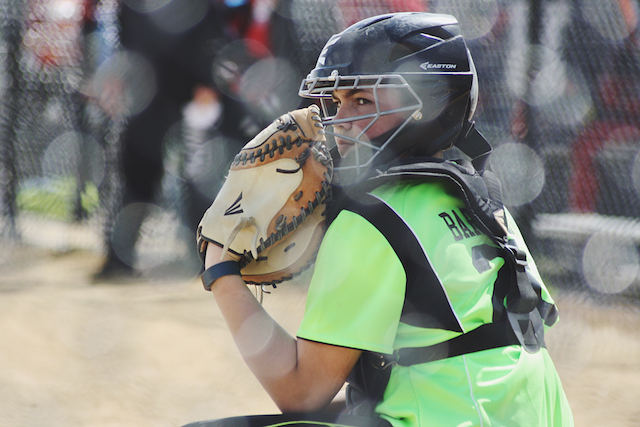When I was a young, my grandmother told me I was big-boned.
Her comment came seemingly out of nowhere. For as long as I can remember, she told me this.
My grandmother was an important piece of my emotional foundation. When I was first born, my mother and I lived with her for a few years before my mother married my stepfather. I still hold onto a favorite picture of her bathing me in her kitchen sink, cigarette in hand.
It goes without saying that our love for each other ran deep, so I know with this big-boned comment she meant no harm. It was likely just a random observation. But it still hurt. I never bothered to ask her why she said it. I was afraid of her response.
Instead, I questioned the meaning of big-boned.
If my bones were big, would they always be big? Does big-boned mean I’m fat?
~
One of the most important things you can do for your vagina and your sex life—to avoid a world of problems later? Check out this device and get a free bag of craft coffee (code; EJCOFFEE)>>
~
Instead of perpetually pondering the question, I answered it for myself.
“Big bones” meant “big girl.” I would always be the big girl. I was the only big girl.
Grammy’s comment shifted from words floating in the air into a label that enveloped me. Big-boned became who I was. I took these words on and owned them.
Being the only big girl made me feel so alone.
Who else was like me? If the other big-boned girls weren’t in my family, where were they?
They certainly weren’t on TV. Daisy Duke from the Dukes of Hazzard was anything but big-boned, with her bare belly and frayed denim shorts. The Solid Gold dancers had their long, flexible legs in fishnet stockings, but they certainly weren’t big-boned. The crime fighting Charlie’s Angels were smart, strong, and sexy, but they certainly weren’t big-boned.
Big-boned girls weren’t on my playground at school either. All my friends were slim and tiny. While they practiced their handsprings and cartwheels, I preferred to play with the boys. I could run, throw, and catch as easily as they could—sometimes even better.
It was there, on the playground, when the painful name calling began.
“You’re a brute,” I heard from the boys, displeased with how I showed them up. I heard it from their buddies too, a masculine show of support. Every time they hurled it at me my stomach would clench.
Like big-boned, I didn’t understand what I’d done to deserve this name. I was just being me. I didn’t even understand what being a brute meant. But I definitely knew it wasn’t nice, pretty, or desirable.
Though I desperately tried to avoid these boys, I couldn’t hide. I looked to my friends for support, but they never spoke up for me. Maybe they didn’t want to bring any ugly attention on to themselves. Regardless of the reason, I didn’t feel safe. I felt alone and unprotected—all I could do was try to make myself small.
The bullies attacked me for something I couldn’t change. My strength. My size. My love of sports. I could never embrace my big-boned, athletic self without mean comments or ridicule.
In my teenage years, my loneliness turned into inner turmoil, shame, embarrassment. My grandmother unknowingly had planted a wound and now my peers tore it open with every sneer.
Thankfully, as I got older, I found pockets of encouragement on the soccer field, basketball court, and softball field. Pushing myself athletically felt right. My coaches applauded my skills and work ethic, but I continued to harbor reservations. In my mind, I was still the big-boned brute.
When I graduated and entered college, I spotted an opportunity for a fresh start. No one knew the nicknames my bullies gave me all those years ago. I was finally free.
When I arrived, I was immediately urged to try out for the softball team. I looked around and finally found women who looked like me. In fact, I was one of the smaller women! This surprised me. They were strong and powerful, and because of this, I came up with a list of reasons not to play with them. I didn’t want to be associated with them; I didn’t want to continue to be the big-boned girl. Guilt by association, that’s the term. I no longer wanted to be the brute. I wanted to leave that girl behind. I wanted to revel in my relative tininess. To be like those cartwheeling girls on the playground.
The softball girls were strong and powerful, but because of this, I came up with a list of reasons not to play with them. I didn’t want to be associated with the qualities we shared. The big-boned girls.
I wanted to leave my reputation behind, to revel in my relative tininess. I wanted to be like the cartwheeling girls on the playground. This was my chance.
Deep inside, I knew I was betraying myself. I met women who loved softball as much as I did. We had a connection. My choice to not play softball at a Division 1 school wasn’t about the sport, it was about who I thought I needed to be. I didn’t feel free to embrace my genuine passion, in fear of returning to the same rejection I faced in the past.
So, instead, I joined the Women’s Cross Country team. There the women were skinny, feminine, and powerful. I was determined to be like them, but getting there was a struggle. I restricted my food intake and worked hard to diet away any extra pounds. I spent years worrying about my body weight, hoping to just blend in.
Deep down, I knew the truth. I was the big-boned girl. And as hard as I tried to be skinny, I couldn’t get skinny enough. I was fighting an uphill battle I couldn’t win. A battle against myself.
Decades later, it’s been healing for me to reflect on how three short words, spoken from a loved one, shaped my view of myself so strongly. Navigating my path to acceptance and self-love has required me to revisit my assumptions about what I believe to be beautiful and powerful.
Thankfully, now I can turn the television on and appreciate the bodies of female athletes with a wide variety of shapes, sizes, colors, and ages. My daughter can, too.
If you’ve received unwanted comments, teasing, or bullying because of your body type, let your healing start here.
Take these steps to free yourself from the labels of others and embrace yourself just as you are:
1. Know that words are just words. They are not your identity.
2. Always move your body in a way that you love and makes you feel good.
3. Drop the comparisons.
4. Don’t wait for your body to look a certain way to appreciate it.
5. Relentlessly practice loving yourself and embracing your uniqueness.
~
~
~
Author: Tara Whitney
Image: Rachel Barkdoll / Unsplash
Editor: Danielle Beutell

 Share on bsky
Share on bsky







Read 4 comments and reply